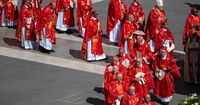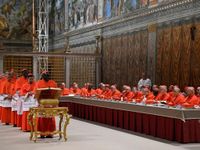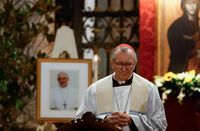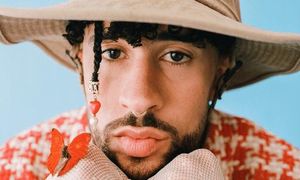The Vatican is currently abuzz with anticipation as 133 cardinals gather in the Sistine Chapel to elect the successor to Pope Francis, who passed away earlier this year. The conclave commenced on May 7, 2025, with many speculating about who will take on the pivotal role of leading the Catholic Church, which boasts over 1.4 billion faithful worldwide.
As the cardinals cast their votes, one name has emerged as a frontrunner: Cardinal Pietro Parolin, the current Secretary of State of the Vatican. Born on January 17, 1955, in Schiavon, Italy, Parolin is a seasoned diplomat and has been closely associated with Francis since his appointment in 2013. His extensive experience in the Vatican and his reputation as a moderate have positioned him as a candidate who could continue Francis's reformist vision while also appealing to more conservative factions within the Church.
In the early rounds of voting, Parolin reportedly secured an initial block of about 40 votes, giving him a significant advantage. His diplomatic skills have been put to the test in various high-stakes negotiations, including the historic rapprochement between the United States and Cuba in 2014, which he played a crucial role in facilitating. This experience has garnered him respect both within the Vatican and on the global stage.
However, the road to the papacy is fraught with unpredictability. The conclave, which has seen a significant diversification of its members in recent years, may yield unexpected results. Many of the cardinals participating were appointed by Francis himself, which could sway the vote towards a candidate who aligns with his progressive agenda.
Alongside Parolin, several other candidates are being closely watched. Cardinal Luis Antonio Tagle, born on June 21, 1957, in the Philippines, is another prominent figure in the race. As the Prefect for the Congregation for the Evangelization of Peoples, Tagle is seen as a potential candidate who could make history as the first Asian pope. His charisma and previous experience as the Archbishop of Manila have made him a favorite among many observers.
Meanwhile, Cardinal Fridolin Ambongo Besungu, the Archbishop of Kinshasa, Republic of the Congo, is also in contention. At 65 years old, Ambongo is known for his outspoken views on social justice and has been an advocate for the marginalized in Africa. His leadership within the Episcopal Conferences of Africa and Madagascar adds to his profile as a serious contender.
Other notable candidates include Cardinal Matteo Zuppi, the Archbishop of Bologna, who has been involved in peace negotiations in Ukraine, and Cardinal Péter Erdő from Hungary, who is recognized for his theological expertise and conservative stance on various issues. Each of these candidates brings a unique perspective to the papacy, reflecting the diverse global landscape of the Catholic Church.
As the cardinals deliberate behind closed doors, the world watches with bated breath. The outcome of this conclave could have far-reaching implications for the Catholic Church, especially as it grapples with contemporary issues such as LGBTQ+ rights, clerical abuse scandals, and the role of women in the Church.
In recent days, speculation about Parolin's candidacy has intensified. During a morning mass held shortly before the conclave began, Giovanni Battista Re, the dean of the College of Cardinals, was heard whispering to Parolin, "Congratulations, twice over". This seemingly innocuous remark has sparked a flurry of conjecture about Parolin's standing among his peers.
Yet, while Parolin is viewed as a candidate of continuity, he also holds traditional views on certain matters, such as same-sex marriage, which he has described as "a defeat for humanity." This blend of moderation and conservatism might make him a palatable choice for a wide range of cardinals, balancing the need for reform with the desire to maintain doctrinal integrity.
The conclave is set to continue with further voting rounds as the cardinals aim to reach a two-thirds majority to elect the new pope. As the world awaits the announcement of the new leader of the Catholic Church, the atmosphere within the Vatican remains electric with anticipation.
In addition to Parolin and Tagle, other potential candidates like Cardinal Robert Prevost, Cardinal Anders Arborelius, and Cardinal Jean-Marc Aveline are also being discussed. Each of these cardinals has their own strengths and weaknesses, further complicating the decision-making process.
As discussions unfold, the cardinals will weigh not only the candidates' qualifications but also the pressing needs of the Church in a rapidly changing world. The next pope will face the challenge of leading a Church that is increasingly diverse and grappling with modern societal issues.
Ultimately, the choice of the next pope will reflect not just the preferences of the cardinals but also the direction they envision for the Catholic Church in the years to come. With the memory of Pope Francis's groundbreaking papacy fresh in their minds, the cardinals are tasked with selecting a leader who can navigate the complexities of contemporary faith while remaining true to the Church's core values.
As the conclave progresses, the world holds its breath, waiting for the iconic white smoke to signal the election of a new pope and the dawn of a new era for the Catholic Church.






